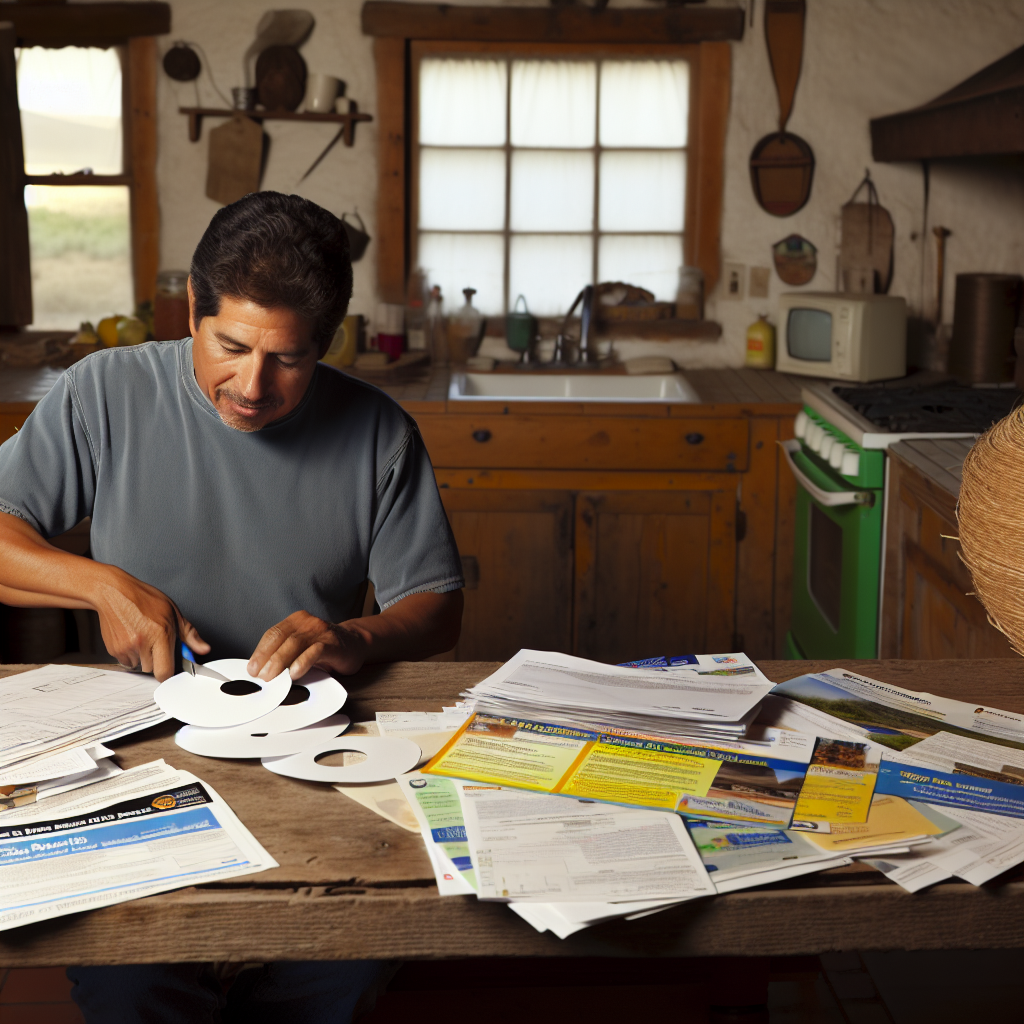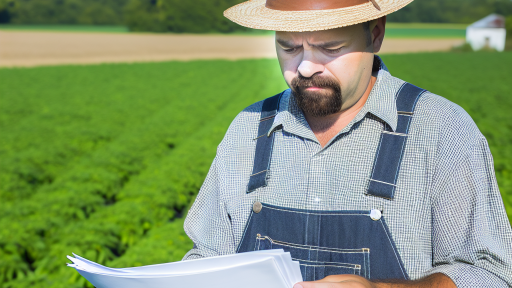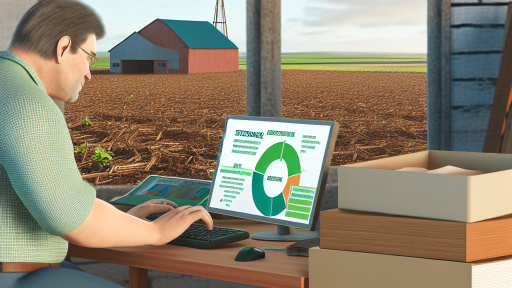Introduction to Renewable Energy Grants for Farmers
Renewable energy grants provide crucial support for farmers looking to adopt sustainable practices.
These financial resources help mitigate costs associated with implementing renewable technologies.
Farmers can benefit from various programs supported by government agencies and private organizations.
Understanding the available grants can significantly impact farm operations and profitability.
The Importance of Renewable Energy in Agriculture
Agriculture is a vital sector that contributes to environmental challenges.
Shifting to renewable energy reduces greenhouse gas emissions across farming landscapes.
Adopting renewable solutions also enhances energy security for farming operations.
Types of Renewable Energy Grants
Farmers can access several types of grants focused on renewable energy projects.
Solar energy grants often support the installation of photovoltaic systems.
Wind energy grants help farmers invest in wind turbine installations on their land.
Biomass energy grants facilitate the development of bioenergy projects using agricultural waste.
Eligibility Criteria for Grants
Eligibility for renewable energy grants varies by program and funding source.
Many programs encourage applications from small to medium-sized farms.
Farmers must typically demonstrate a commitment to sustainability and energy efficiency.
Submitting accurate documentation increases the chances of grant approval.
Transform Your Agribusiness
Unlock your farm's potential with expert advice tailored to your needs. Get actionable steps that drive real results.
Get StartedApplication Processes and Tips
Applying for renewable energy grants requires diligent preparation and organization.
Begin by researching available programs to identify appropriate grants.
Gather necessary documentation, including project proposals and budgeting estimates.
Always adhere to application deadlines and specific submission guidelines.
Consider seeking assistance from agricultural extension offices or consultants.
Potential Challenges
While renewable energy grants present opportunities, challenges can arise during the process.
Understanding specific grant requirements may seem complex at first.
Moreover, competition for funding can be intense in some regions.
Staying informed about program changes is crucial for success.
Success Stories
Many farmers have successfully navigated the grant process to implement renewable energy.
For example, Clara Morgan, a dairy farmer, harnessed solar energy, reducing operational costs.
Similarly, the Johnson Family Farm installed wind turbines, boosting energy independence.
These examples illustrate the positive impact of renewable energy grants on farming viability.
Types of Renewable Energy Grants Available
Federal Grants
Federal grants provide substantial support for renewable energy projects.
These grants often target specific technologies like solar and wind energy.
For instance, the Rural Energy for America Program (REAP) offers funding chances.
This program specifically assists farmers in developing renewable energy systems.
State-Specific Grants
Many states have their unique grant programs for renewable energy initiatives.
These grants vary by state, reflecting local energy needs and resources.
For example, California often focuses on solar energy incentives.
Meanwhile, Texas provides various support for wind energy projects.
Nonprofit Grants
Certain nonprofit organizations offer grants aimed at renewable energy projects.
These grants usually focus on sustainable agricultural practices.
Organizations like the Sustainable Agriculture Research and Education (SARE) provide funding.
Showcase Your Farming Business
Publish your professional farming services profile on our blog for a one-time fee of $200 and reach a dedicated audience of farmers and agribusiness owners.
Publish Your ProfileFarmers can apply for projects that support both renewable energy and sustainability.
Utility Company Grants
Some utility companies offer grants to encourage renewable energy use.
These grants typically promote energy efficiency and renewable installations.
Farmers can save on costs while improving energy sustainability.
Research Grants
Research grants also support innovative renewable energy projects.
These grants often target technology development and efficiency improvements.
Universities and research institutions frequently lead these initiatives.
Collaborations with farmers can enhance practical applications of research findings.
Tax Credits and Incentives
While not direct grants, tax credits and incentives provide crucial financial support.
Farmers can reduce installation costs for renewable energy technologies.
These incentives often complement other grant opportunities.
Understanding these options maximizes potential funding sources.
Eligibility Criteria for Farmers Applying for Grants
Understanding the Basics
Farmers must meet specific eligibility criteria to apply for renewable energy grants.
These criteria often include factors like farm size and type.
Additionally, applicants may need to demonstrate financial stability.
Farm Type Requirements
The type of farm can impact grant eligibility.
- Crop farms often qualify for different grants than livestock farms.
- Organic farms might have unique funding opportunities.
- Specialty farms may also be considered differently.
Geographic Considerations
Geographic location plays a crucial role in eligibility.
For example, some programs focus on rural areas.
Others may be available only in specific states or regions.
Financial Criteria
Farmers must demonstrate financial need for many grants.
Some programs require proof of current revenue streams.
In addition, applicants might need to show past financial records.
Commitment to Sustainability
Demonstrating a commitment to renewable energy is essential.
Applicants should outline their sustainability practices clearly.
Furthermore, they may need to explain future energy projects.
Documentation Needed
Farmers need to prepare specific documents for their applications.
- Proof of farm ownership or lease agreements.
- Personal financial statements.
- A detailed business plan focusing on renewable energy use.
You Might Also Like: The Role of Food Safety Standards in Farm Management
Step-by-Step Guide to Applying for Renewable Energy Grants
Research Available Grants
Begin by researching available renewable energy grants specific to farmers.
Look for federal, state, and local programs that may assist.
Visit websites such as Grants.gov and USDA for comprehensive information.
Determine Eligibility
After identifying grants, assess your eligibility for each program.
Review the requirements carefully to confirm your qualifications.
Consider factors like the type of farming operation and energy projects.
Gather Necessary Documentation
Compile all required documentation before beginning your application.
This may include financial statements, farm management plans, and project proposals.
Ensure all documents meet the guidelines specified by the granting agency.
Complete Application Forms
Fill out the application forms thoroughly and accurately.
Pay attention to each section and answer questions directly.
Double-check for any missed information before submission.
Develop a Project Plan
Create a detailed project plan to accompany your application.
Showcase Your Farming Business
Publish your professional farming services profile on our blog for a one-time fee of $200 and reach a dedicated audience of farmers and agribusiness owners.
Publish Your ProfileOutline the scope, objectives, and timeline of the project clearly.
Include how the project will benefit both your farm and the environment.
Submit Your Application
Submit your application by the deadline specified for each grant.
Follow submission guidelines carefully to avoid disqualification.
Keep copies of all submitted materials for your records.
Follow Up
After submission, follow up with the grant agency if necessary.
Inquire about the status of your application respectfully.
Be prepared to provide additional information if requested.
See Related Content: Evaluating Alternatives To Traditional Pesticides
Best Practices for Completing Grant Applications
Research Thoroughly
Start by researching available grants for renewable energy.
Understand the specific requirements of each grant.
Take note of any deadlines and eligibility criteria.
Prepare Your Documentation
Gather all necessary documents before beginning your application.
This may include financial statements and project proposals.
Ensure that all documents are accurate and up to date.
Write Clearly and Concisely
Use clear language throughout your application.
Avoid jargon that could confuse reviewers.
Moreover, stay on topic and keep paragraphs short.
Tailor Your Application
Customize your application to align with the grant’s goals.
Highlight how your project will benefit the community and environment.
Additionally, demonstrate the sustainability of your efforts.
Budget Wisely
Outline a detailed budget for the project.
Ensure all expenses are reasonable and justified.
Be transparent about how funds will be utilized.
Seek Feedback
Before submitting, ask colleagues for feedback on your application.
They can provide valuable insights and suggestions.
Consider revising text based on constructive criticism.
Follow Up
After submitting your application, be proactive in following up.
Contact the grant administrator to confirm receipt.
Additionally, inquire about the review timeline, if appropriate.
See Related Content: The Role of Rural Development Policies in Enhancing Farm Sustainability
Common Challenges Farmers Face When Applying
Lack of Awareness
Many farmers remain unaware of available renewable energy grants.
This lack of knowledge hampers their ability to apply effectively.
Furthermore, some farmers may not know where to find information.
Complex Application Processes
The application process for grants can be daunting.
Often, it requires a significant amount of documentation.
Many farmers struggle to gather the necessary materials on time.
Additionally, complex guidelines may discourage potential applicants.
Technical Expertise Requirements
Some grants necessitate technical knowledge that farmers may lack.
This requirement might prevent them from completing applications.
Showcase Your Farming Business
Publish your professional farming services profile on our blog for a one-time fee of $200 and reach a dedicated audience of farmers and agribusiness owners.
Publish Your ProfileFarmers often need assistance to meet these technical criteria.
Financial Constraints
The financial burden of preparing grant applications can be significant.
Farmers may have limited resources to cover these costs.
Ultimately, this situation may deter them from pursuing opportunities.
Time Limitations
Farming demands considerable time and effort throughout the year.
Consequently, finding time to focus on grant applications can be tough.
Many farmers prioritize daily obligations over grant opportunities.
Perceived Uncertainty
Farmers frequently perceive grants as uncertain investments.
They worry about the outcome of their applications.
This uncertainty often leads to hesitance or resignation to inaction.
Learn More: Adapting Farming Practices to Rural Development Policy Changes

Resources and Organizations Offering Grant Assistance
Federal Resources
The U.S. Department of Agriculture provides various grants for farmers.
Additionally, the USDA supports renewable energy projects through its Rural Energy for America Program.
This program offers both grant and loan guarantees for agricultural producers.
Another valuable resource is the U.S. Department of Energy.
They administer funds for renewable energy initiatives through various programs.
State Programs
Many states have dedicated programs to support renewable energy for farmers.
For example, California’s GO-Biz offers grants for clean energy projects.
Likewise, Colorado’s Office of Economic Development promotes sustainability in agriculture.
Connect with your state’s energy office to learn about available grants.
Each state may have unique funding opportunities tailored to local needs.
Non-Profit Organizations
Numerous non-profit organizations aid farmers in accessing renewable energy grants.
The Agricultural Energy Coalition offers guidance and resources for energy initiatives.
Furthermore, the American Farmland Trust focuses on sustainable farming practices.
They often collaborate with state and federal programs to assist farmers.
Private Sector Opportunities
Private companies also provide funding resources for renewable energy projects.
For instance, local electric cooperatives may have grant programs for farmers.
These cooperatives often promote solar or wind energy projects.
Additionally, some companies offer matching grants for sustainability initiatives.
Investigate private sector opportunities in your region to find suitable grants.
Research and Educational Institutions
Many universities and research institutions explore renewable energy in agriculture.
They may offer grants for research projects related to sustainable practices.
For instance, land-grant universities often have dedicated funding for agricultural innovations.
These institutions can provide resources and guidance on securing these grants.
Reach out to local universities to explore potential collaboration opportunities.
Case Studies: Successful Grant Recipients in Farming
Innovative Solar Farm in Michigan
Green Fields Farm secured a grant for solar panel installation.
This initiative significantly reduced their energy costs.
Now, they produce renewable energy to power their operations.
As a result, they contribute to the local energy grid.
Wind Energy Implementation in Texas
Texas Windy Acres received funding to install wind turbines.
Showcase Your Farming Business
Publish your professional farming services profile on our blog for a one-time fee of $200 and reach a dedicated audience of farmers and agribusiness owners.
Publish Your ProfileThis project enabled them to harness reliable wind energy.
The farm now powers its equipment sustainably.
Consequently, their carbon footprint has been greatly reduced.
Geothermal Heating in Vermont
Mountain Ridge Farms applied for a geothermal grant.
This funding helped them install an efficient heating system.
Now, they use renewable energy for their greenhouse operations.
This method improves crop growth and reduces heating costs.
Organic Dairy Farm in California
Clover Meadow Organic Farm adopted solar energy solutions.
The farm utilized a grant for solar water heating systems.
This technology enhances their dairy production process.
As a result, they minimize energy consumption and costs.
Biofuel Production in Wisconsin
Harvest Biofuels received funding to produce biofuels.
This initiative transformed waste products into renewable energy.
Now, they power farm vehicles and equipment sustainably.
Additionally, they educate other farmers on biofuel production.
Future Trends in Renewable Energy Grants for Agriculture
Increased Focus on Solar Energy
Farmers are increasingly turning to solar energy for power generation.
This trend is driven by lower installation costs and government incentives.
Moreover, solar energy provides a reliable source of electricity for agricultural operations.
Consequently, more grants are specifically targeting solar projects in agriculture.
Emerging Technologies in Wind Energy
Wind energy is becoming a viable option for many farming operations.
Advancements in turbine technology improve efficiency and reduce costs.
Farmers are exploring small-scale wind turbines for on-site energy generation.
Grants supporting wind energy initiatives are likely to increase in the future.
Support for Energy Storage Solutions
Energy storage is gaining importance in renewable energy systems.
Farmers need reliable methods to store energy generated from renewable sources.
Batteries and other storage technologies enhance energy efficiency.
Future grants will likely prioritize projects that incorporate storage solutions.
Integration with Precision Agriculture
Renewable energy systems can enhance precision agriculture efforts.
Farmers utilize data and technology to manage resources more effectively.
Integrating renewable energy can reduce costs and improve sustainability.
Grants may increasingly focus on projects that align renewable energy with precision agriculture.
Regulatory Changes and Policy Support
Government policies are evolving to support renewable energy adoption in agriculture.
New regulations may offer additional financial incentives for farmers.
Staying updated on these changes will be crucial for accessing grants.
Farmers should engage with local policymakers to understand upcoming opportunities.
Additional Resources
Investing in America: Climate Action Funding Resource Guide | US …
Department of Agriculture, Department of Energy Launch Initiative to …




